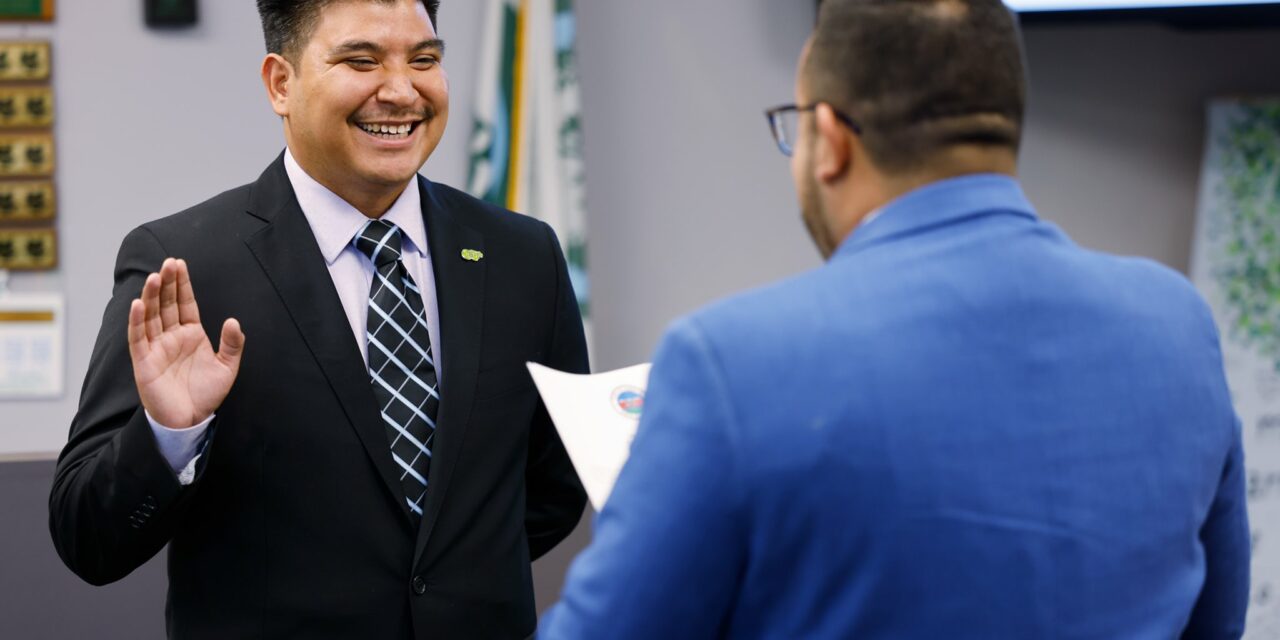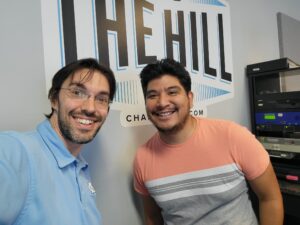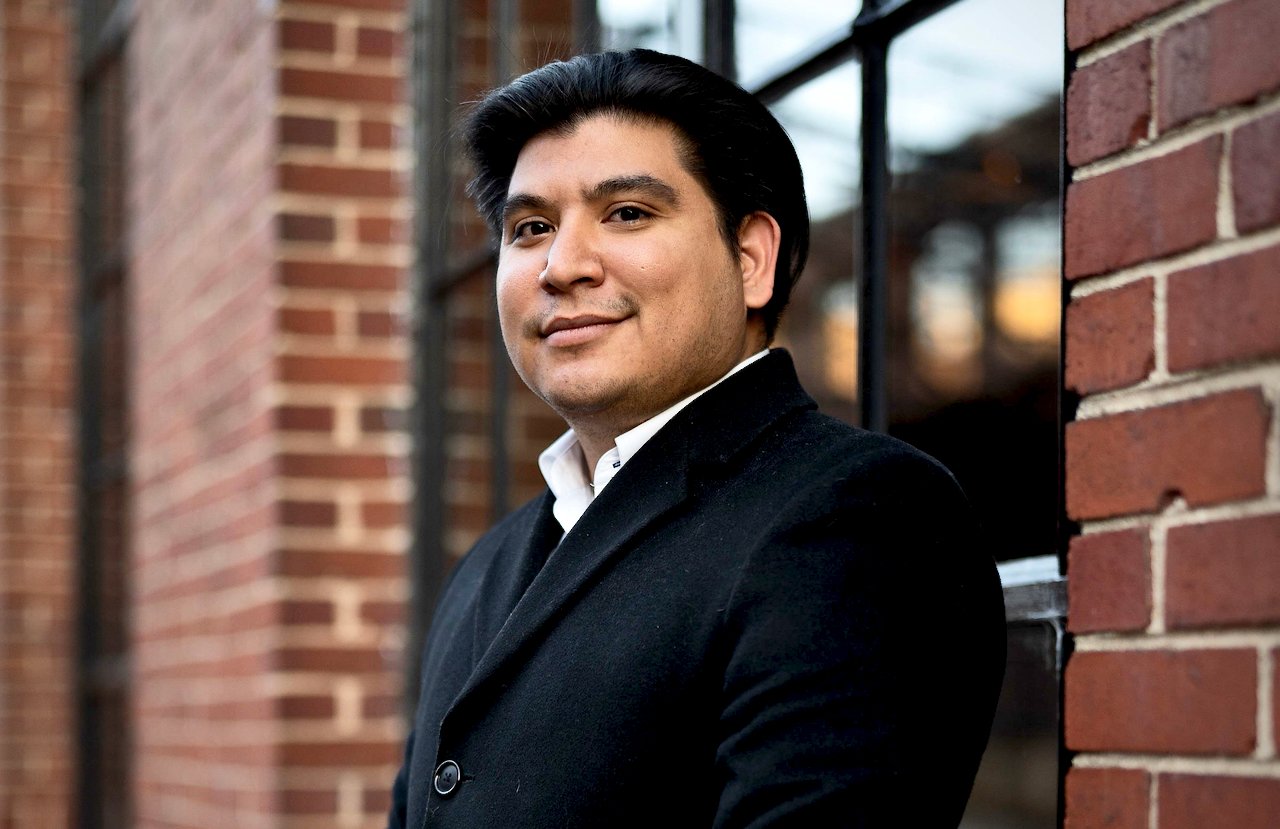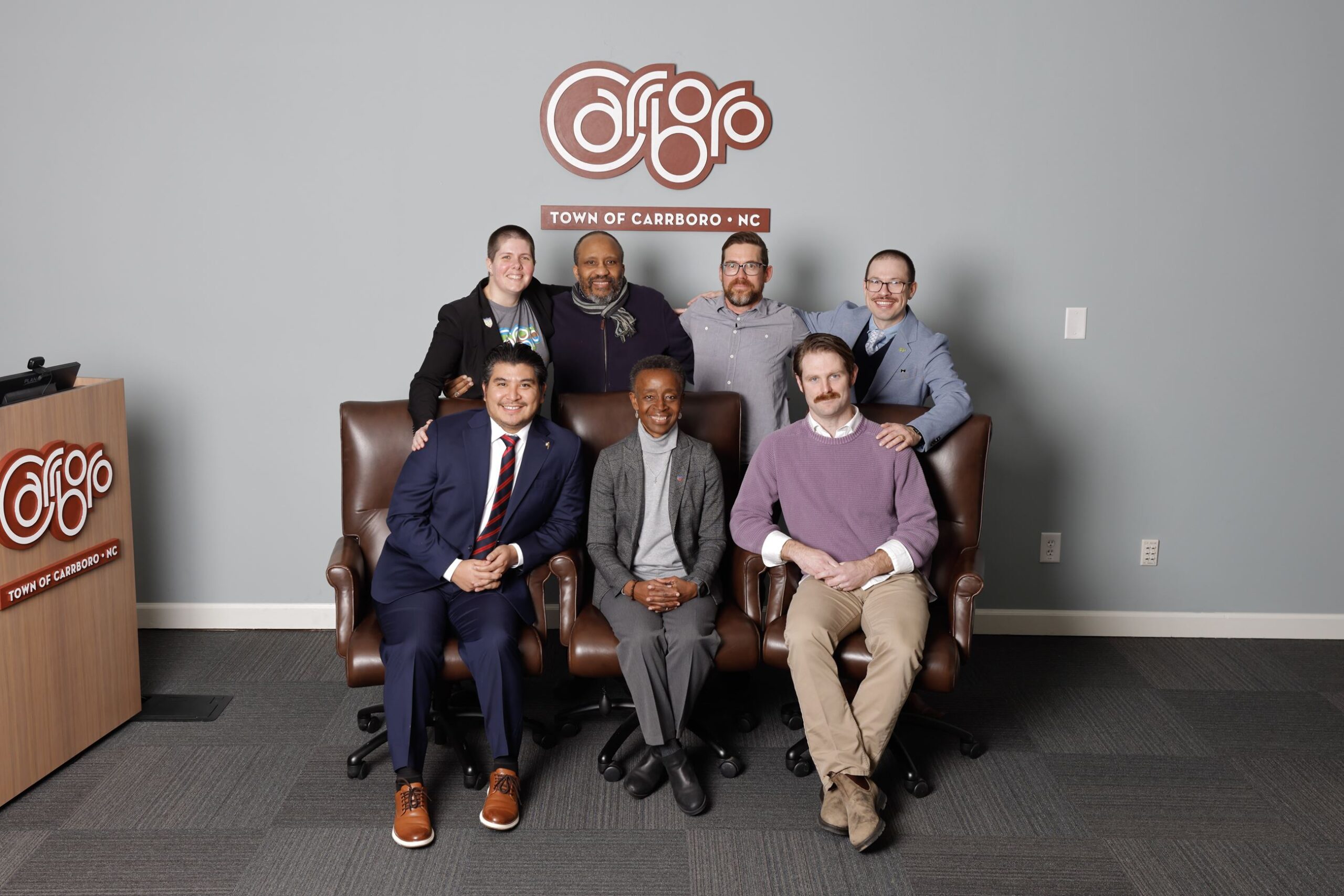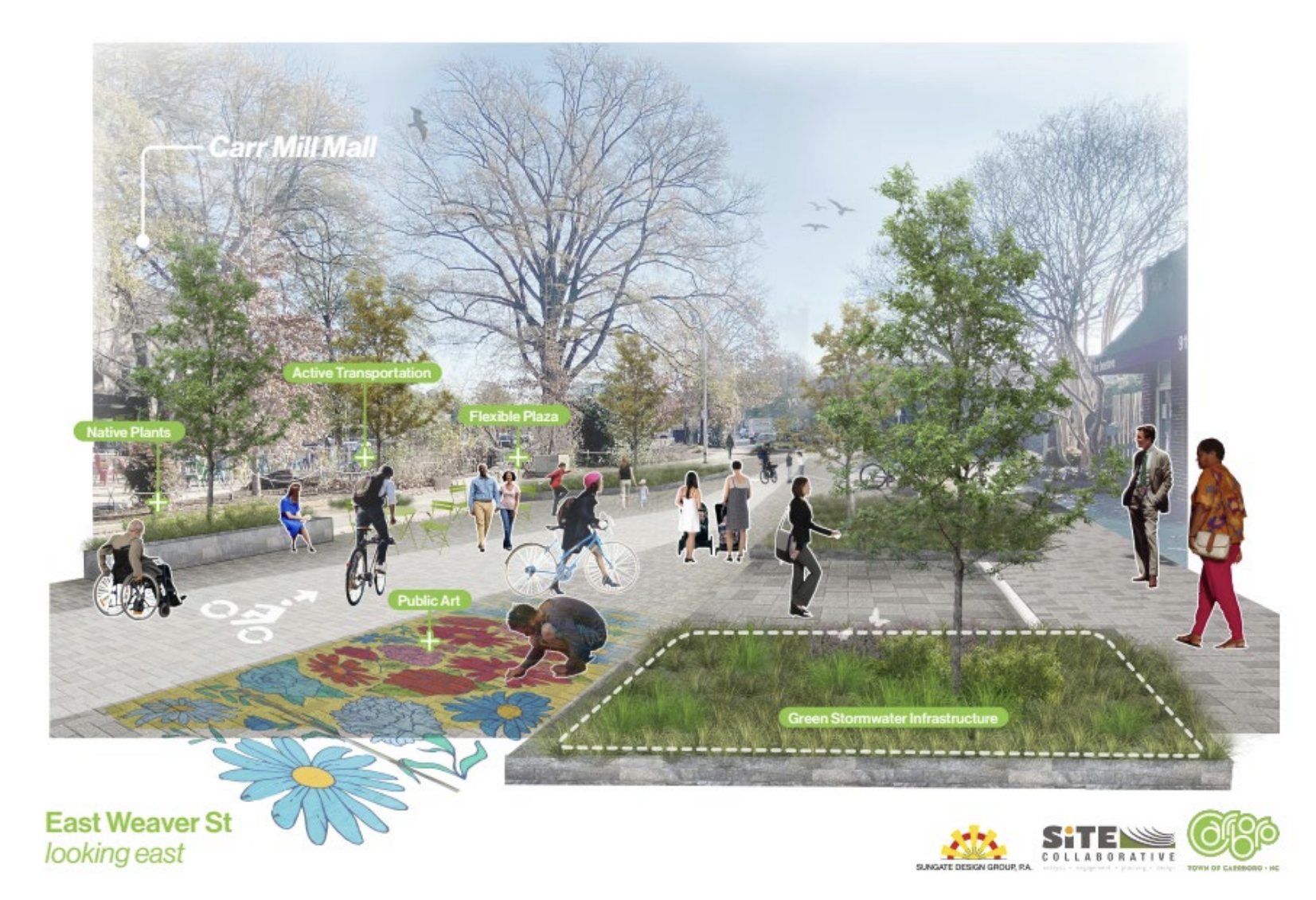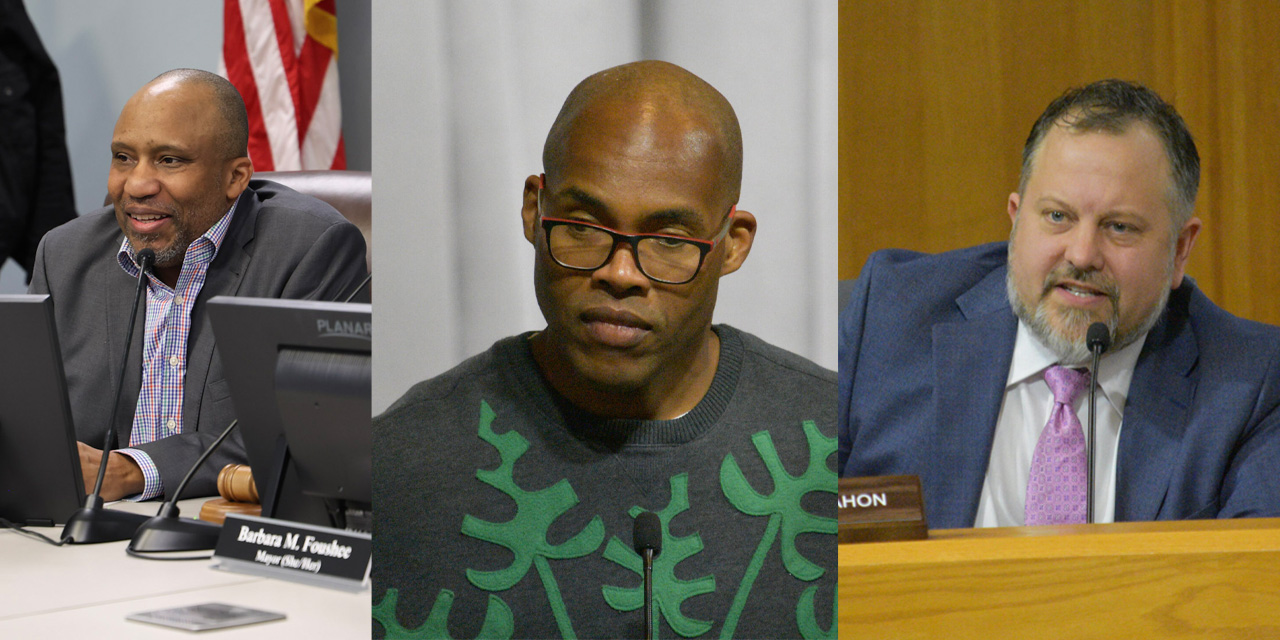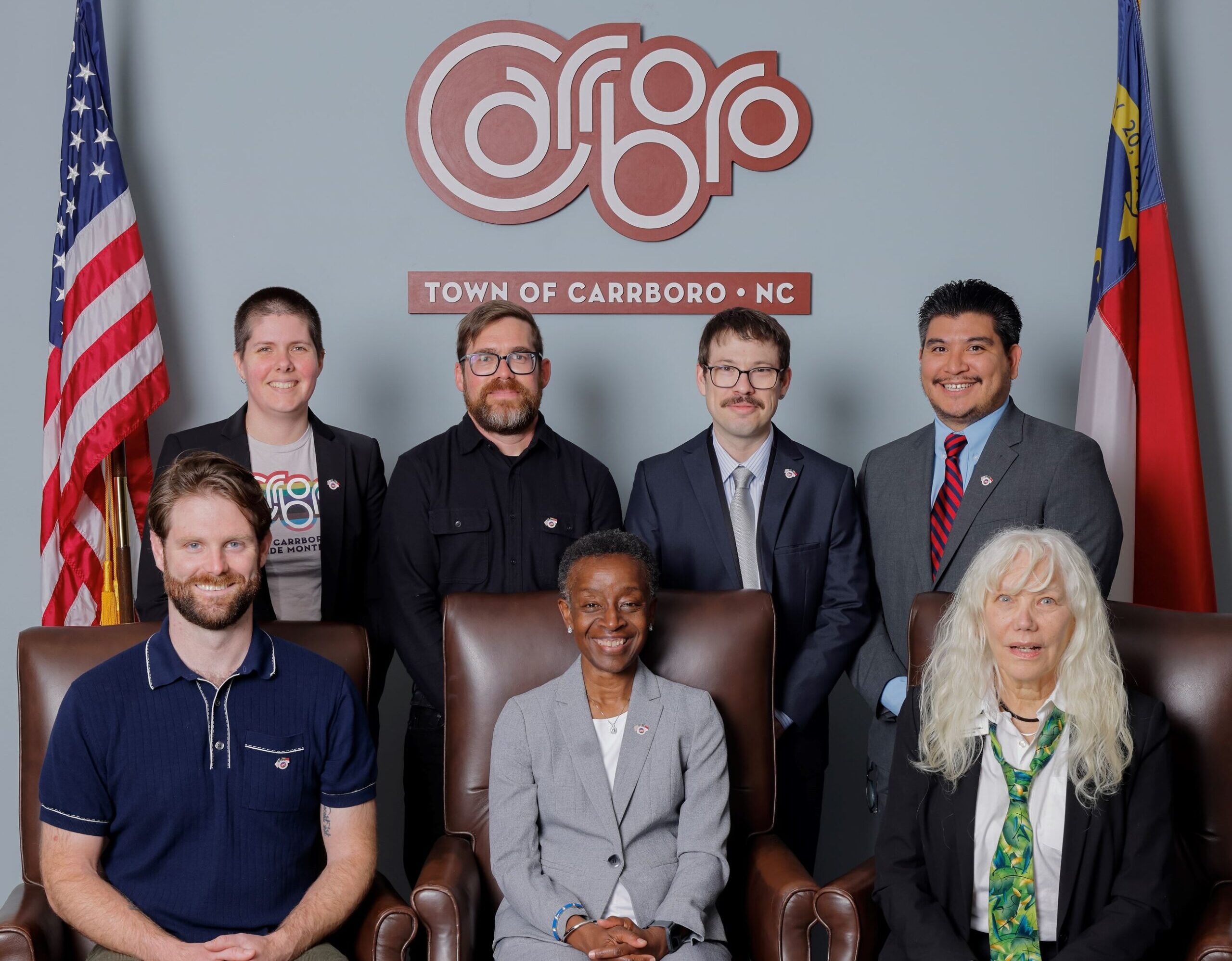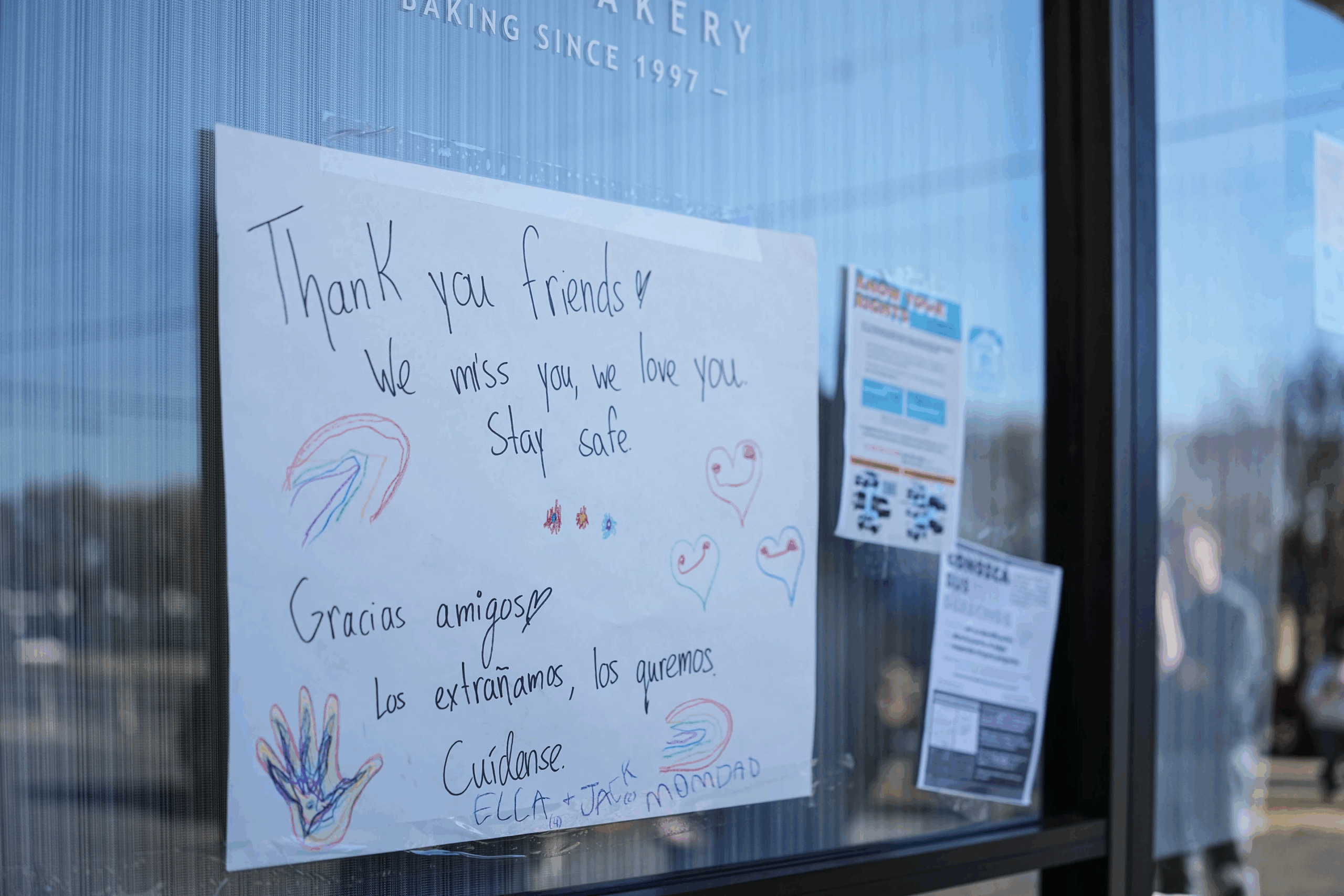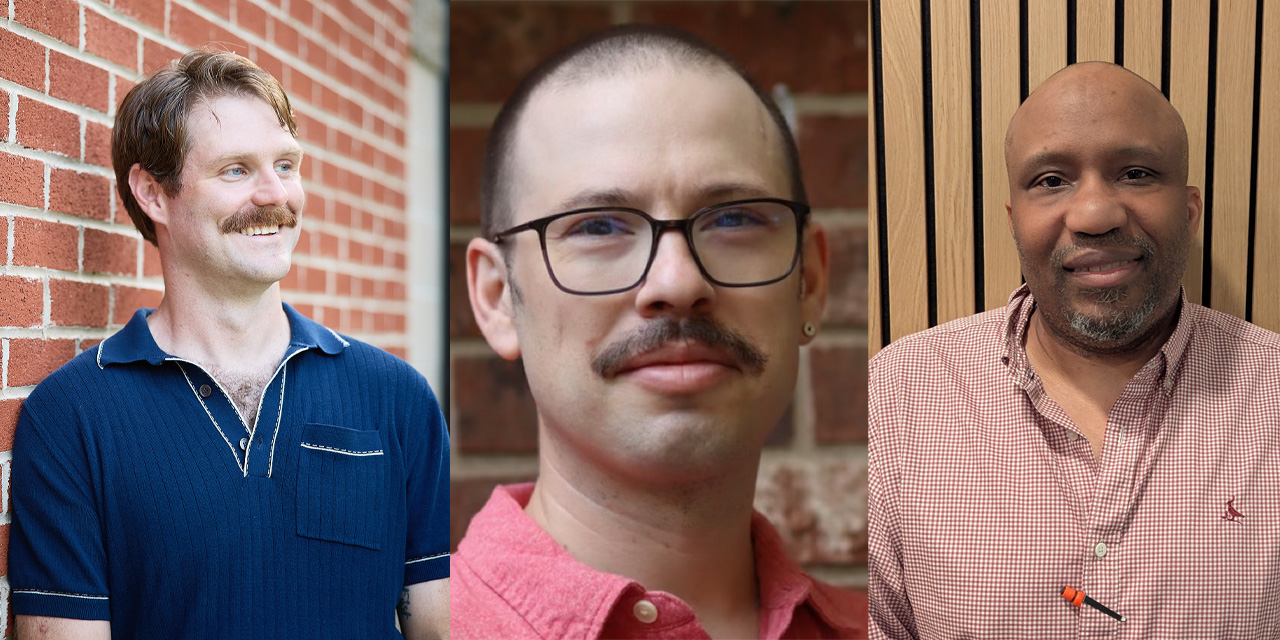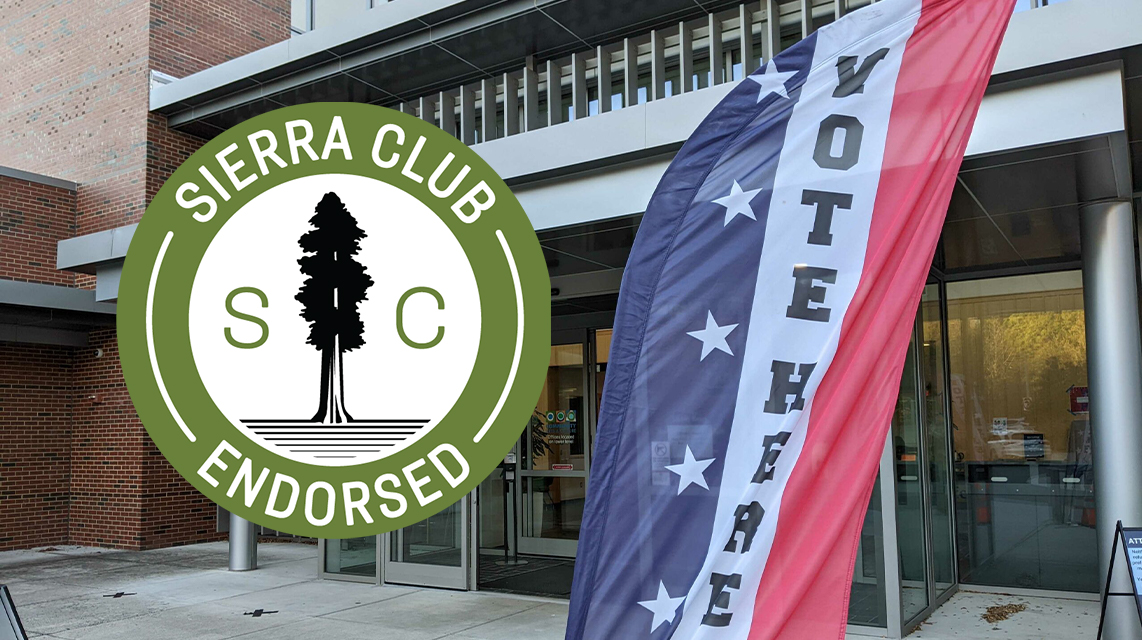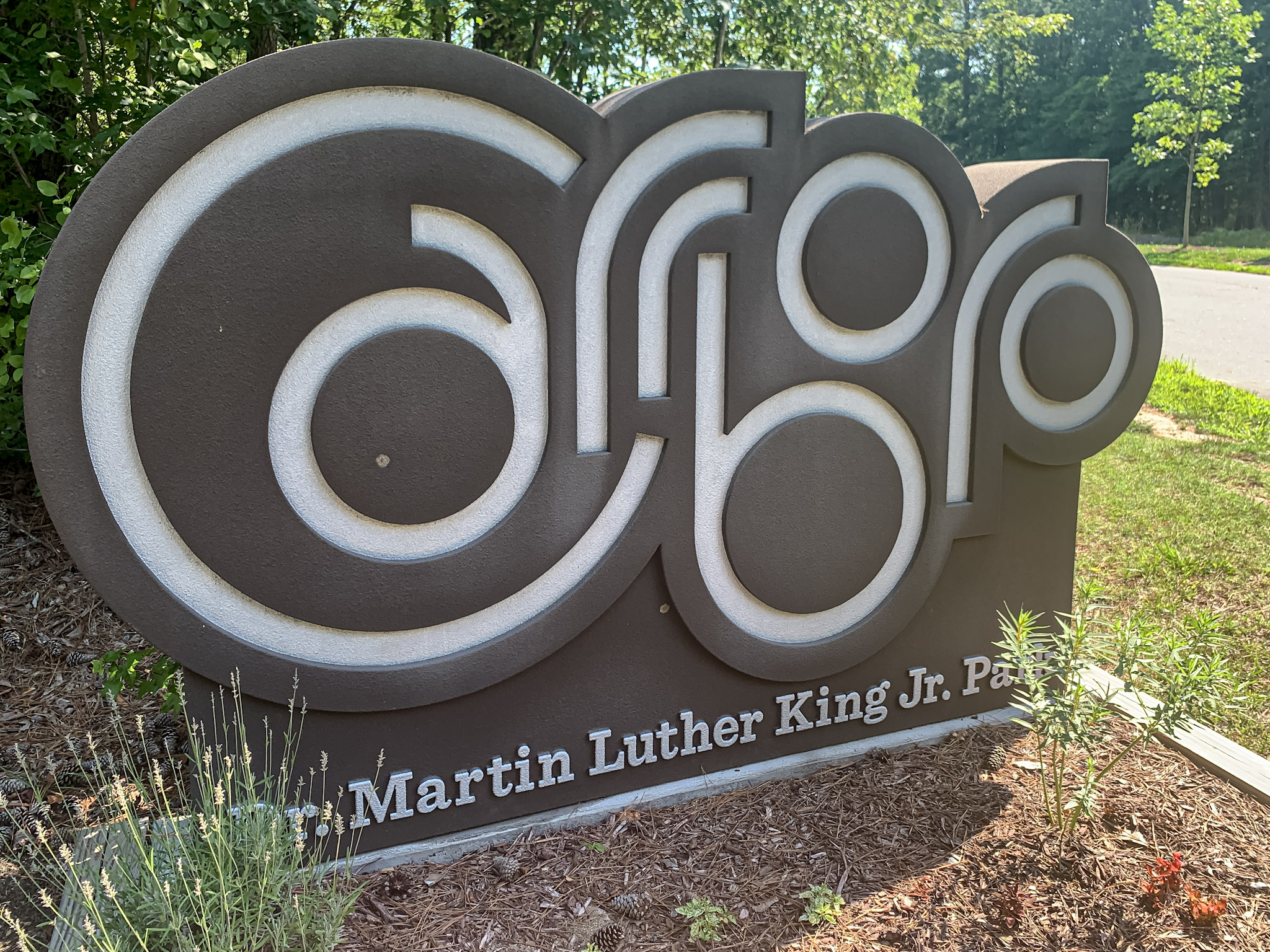May’s primary election was also a general election for the town of Carrboro, as residents chose a new Town Council member to fill a vacant seat on the board.
The winner of that race, Eliazar Posada, took the oath of office on June 7. Best known for his work with El Centro Hispano, Posada with his win became the first openly-gay Latino elected official in all of North Carolina. And it wasn’t long before he had the opportunity to make a big impact – standing up (literally) and taking a leadership role less than an hour after his swearing-in ceremony, when a spat broke out between two of his fellow council members.
Councilmember Posada spoke with 97.9 The Hill’s Aaron Keck on “This Morning” last week.
Listen to their conversation:
Aaron Keck: So tell us about the first month on the council.
Eliazar Posada: It’s been fun. We’ve been doing great work. Of course I came in at the very end of the budget season and had to catch up real quick, but it’s been amazing.
Keck: How much did you keep up with the budget discussions on the campaign trail, on the assumption or the possibility that you might have to know this in depth in a couple of weeks?
Posada: I kept up with most of it. The bigger stuff, the 203 Project, the comprehensive plan. But I just did not expect that massive document when I sat down. But see, I’m a little bit of a nerd. I had a Sunday off and I was like, you know what, let’s tackle this. I grabbed my iPad and I went to a coffee shop and just sat there all day, going through everything. I enjoyed it.
Keck: I’m sure a lot of folks know you pretty well, but for folks who don’t: officially introduce yourself. What’s your background?
Posada: I’ve been in the area for about six years. A lot of my work prior to running for office was working with a nonprofit, El Centro Hispano, the largest Latinx nonprofit in North Carolina. I started as a volunteer for one of the LGBTQ support groups, and within five years I was the acting president and CEO of the organization.
Keck: And you’re the first openly gay Latino elected official in North Carolina, right?
Posada: Yes. And it’s been interesting, it’s been really fun hearing from folks. I was (recently) asked to go to an event and there were a couple of folks who came up to me – they don’t live in Carrboro, but they had been following my race, and one person came up and was in tears and I was like, “what’s going on? Are you okay?” And after they were able to gather themselves, they just expressed how much my being elected as an openly gay Latino person meant to them as an openly gay Latinx person. And it kind of just hit me: you know, this is representation that we needed in this state, and I’m hoping we see more of it…
And now what I’m trying to do moving forward is using not just the visibility that comes with the office, but also the networks that I’ve been able to build, to push people and encourage folks, more than anything, to be more participatory as we move into this November election. We know that there’s so much on this ballot, so much, and it’s never the time to be complacent. This is not the time to stay home. You need to register to vote, you need to register your neighbors. You need to make sure that your voice is being heard in that ballot box.
Keck: And folks have an opportunity to stand up and have their voice heard every day between now and the election as well.
Posada: Of course. Email your representative. Make phone calls. Work with organizations who are doing this work. We just saw a pretty devastating decision from the (Supreme) Court this last week, and over the weekend, there were hundreds of demonstrations and protests, here in the Triangle, across the state, across the US. And again, a big thing: we need to look at the long game, right? The long game is changing. The leadership of these institutions is making sure that people who are pro-our community are in those elected positions. And that means building a voting base. That means registering people to vote. That means bringing in and educating young people, people of color, folks that have been left out of this process in the past.
Keck: Speaking of taking a stand: (you had) a really prominent opportunity to take a stand, literally in the first hour after you were on Town Council. I was watching the meeting and just focusing on you. “What is he going to do?” There was a very public, very sudden public spat between two members of the Town Council (Sammy Slade and Barbara Foushee) at this meeting, 45 minutes after you had just been sworn in, and everyone on the council had to make a choice: do I stay seated or do I stand up and walk out? You were the first one to stand up and step away.
(Editor’s note: the Slade/Foushee controversy had blown up at the previous Town Council meeting, which occurred shortly after the mass shooting in Uvalde, Texas. Slade blamed the shooting on the role of big money in politics, implicitly drawing a connection with his own recent criticism of State Sen. Valerie Foushee for taking PAC money in May’s Congressional primary. Barbara Foushee – who’s related to Valerie – took strong offense and briefly walked out. Then at the June 7 meeting – with Posada now on the Council – Slade doubled down on his earlier comments, again prompting Foushee to walk out. Posada also walked out 20 seconds later, in turn prompting the rest of the Council to follow suit.)
Keck: And it was a leadership moment, because everyone else on the council took that initiative and followed you out.
Posada: Yeah.
Keck: There were 20 seconds (that went by) before you stood up and walked out. What was going through your mind in those 20 seconds?
Posada: I’ve been following this controversy from the very beginning. And of course it breaks out again in my first meeting. Barbara gets up, Councilwoman Foushee. She starts walking out. And in my mind, (I thought) I need to get out. If you (watch the video), immediately…
Keck: You pushed your chair back.
Posada: Pushed my chair back immediately. And then the first thing that pops in my mind is, “this is your first meeting. You’ve been here less than an hour. What are you gonna do?” My first thought was to move, and then I kind of had a little bit of doubt. Because – you don’t see this from the videos, but a lot of the community members that were in the audience, they immediately looked at me. And I kind of get this moment of, like, “do I need to do this?” And then I was like, “no. Eff it. I need to. Why am I doubting this?” And I got up.
Watch the video of the June 7 meeting. (Posada takes the oath of office at the 20-minute mark; the controversy breaks out at the 1:20 mark.)
And part of it was seeing Barbara actually leave the room. And I didn’t want to chase after her either. But – it all goes back to who I am. That controversy, you know, the comments that Sammy had made (at the previous meeting) – I’m going to be very blunt with you. I grew up in Weslaco, Texas, which is on the very border of Mexico. And the school in Uvalde looked very much like the school I went to growing up. The kids, they looked exactly like the ones I grew up with. And there’s one of the pictures of one of those kids that looked exactly like my brother, my little brother when he was growing up. So the comments made by Sammy hit me extremely hard. Put aside where they were directed. The fact that that instance was used to make that political (statement) hurt me like nobody’s business.
My plan was to address it directly at some point – wasn’t going to be my first meeting. But the opportunity came and I just had to stand up. And I’ve told Barbara this, and (the other) folks on council: you know, I’m going to be standing for the issues that I care about. And one of those is standing by our community members. The speaker that came before that interaction (Soteria Shepperson) made a very clear point: this was not the first time that Barbara needed to step out, and (the time before) the Council did nothing. And I wasn’t about to sit there and be the person that just watches it happen. I just couldn’t.
Keck: And I think that 20 seconds is really valuable for folks to watch, because – there are people in the community, and you’re one of them, who are very vocal, public advocates. You’re out there, you’re doing stuff, you’ve been in the community as an advocate for a long time. And I think people who aren’t in that position look at you and they think, “oh, it’s easy for them, to get up and make that stand.” It’s not. It’s difficult to make that choice.
Posada: Yeah. It’s very difficult. You said it took 20 seconds – I could have told you that break was hours.
Keck: I’m sure.
Posada: For me it (felt) so long. So many things were going on my head. Like, how is this going to affect my relationship with other council members? How is this going to affect my relationship with my community? How is this going to be perceived by my supporters? And ultimately it was – you know what, that doesn’t matter. What matters right now is that there’s a person who has supported me, who I’ve admired for as long as I’ve been in Carrboro, in need of support. And I’m going to be there for you.
Featured photo via the Town of Carrboro.
Chapelboro.com does not charge subscription fees, and you can directly support our efforts in local journalism here. Want more of what you see on Chapelboro? Let us bring free local news and community information to you by signing up for our biweekly newsletter.

